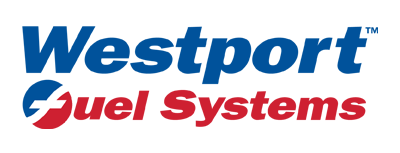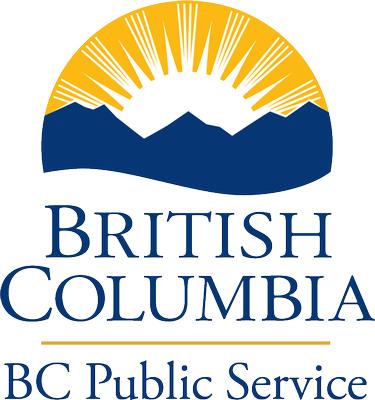 |
Today's News |
UBC Spin-Off Company Carbin Minerals Wins $1 Million From XPRIZE and Elon Musk | Musk Foundation in Competition for Carbon Removal Technology
Monday, April 25, 2022
Vancouver, BC, April 25, 2022--(T-Net)--UBC spin-off company Carbin Minerals will receive $1 million from XPRIZE and the Musk Foundation to remove thousands of tonnes of carbon dioxide from the atmosphere, reducing greenhouse gas emissions.

The prize is part of the XPRIZE Carbon Removal competition, funded by Elon Musk and the Musk Foundation.
(Another UBC spinoff, Takachar won the student version of the XPRIZE last year and will receive an additional $1 million this year).
Carbin Minerals built on over 20 years of research from Dr. Greg Dipple's research lab at the University of British Columbia in order to accelerate the natural process of atmospheric carbon mineralization, removing carbon dioxide from the air and storing it permanently as rock.

They recently partnered with Canadian tech heavyweight Shopify to usher in a new phase, one where they start implementing their technology at commercial scale, and to build out their world-changing climate solution.
XPRIZE, a leader in prize competitions to accelerate breakthroughs that benefit humanity, and the Musk Foundation announced in celebration of Earth Day, that 15 teams have been designated as milestone winners in the $100M XPRIZE Carbon Removal competition.
Each of the 15 milestone winning teams, including Carbin Minerals has been awarded $1M to recognize their efforts to date and support their continued work to scale solutions.
The overall winners will be awarded $80M in 2025.

Carbon removal research at a legacy mine site in western US. Credit: Bethany Ladd
The XPRIZE Carbon Removal competition was launched to encourage carbon removal innovators to work on tackling the biggest threat facing humanity: fighting climate change and rebalancing Earth's carbon cycle.
This $100M competition, funded by Elon Musk and the Musk Foundation, is the largest incentive prize in history and the XPRIZE Carbon Removal teams represent the largest collection of innovators working on carbon removal. The milestone winners are representing Australia, Canada, France, Iceland, Kenya, the Netherlands, the Philippines, the United Kingdom and the United States. Unlike previous prizes, every team is still eligible to compete and win the grand prize.
The teams are pursuing a mix of known solutions and new approaches to carbon removal: ecosystem restoration, biochar, agricultural solutions, organic and inorganic ocean solutions, mineralization of mine tailings and naturally occurring minerals, direct air capture with geologic sequestration, agroforestry, soil carbon and more.
Any solution is eligible to compete so long as it actually works, achieves net negative emissions, sequesters carbon dioxide durably over at least 100 years, and shows a sustainable path to ultimately achieving gigatonne scale. Crucially, the XPRIZE is not an ideas competition; it is an execution and demonstration competition.
The submission process was extremely demanding by design, with a field of 1,133 teams narrowed to 287 teams meeting the eligibility criteria for the milestone awards. 70 expert reviewers screened and ranked the inbound proposals for scientific validity, and selected the top 60 teams. Judges went deeper on operations plans, performance data, life cycle analysis and cost estimates in order to ultimately select the top 15 teams taking home the interim $1M Milestone Awards.
"One year in, we already see the positive impact of the prize: hundreds of groups working on a wide range of promising carbon removal solutions. Not just ideas, but development and deployment plans, which is exactly what we need. The pace and depth of initiatives in carbon removal and other crucial climate solutions has never been greater, but we still need more—more and deeper emissions cuts, and more reliable, validated carbon removal solutions. That's why we launched this prize in the first place," stated Dr. Marcius Extavour, chief scientist and vice president of climate and environment at XPRIZE.
The 15 milestone winners, listed by primary solution type, include:
Air
- Calcite from 8 Rivers Capital - U.S.
- Carbyon - Netherlands
- Heirloom & Carbfix - U.S. & Iceland
- Project Hajar - U.K.
- Sustaera - U.S.
- Verdox & & Carbfix - U.S. & Iceland
Land
- Bioeconomy Institute Carbon Removal Team from Iowa State - U.S.
- Global Algae Innovations - U.S.
- NetZero - France
- PlantVillage from Penn State - U.S.
- Takachar & Safi Organics from University of British Columbia - Kenya
Ocean
- Captura from California Institute of Technology - U.S.
- Marine Permaculture SeaForestation from the Climate Foundation - U.S., the Philippines & Australia
- Planetary - Canada
Rocks
- Carbin Minerals from University of British Columbia, Vancouver - Canada
The competition now completely resets before the remaining $80M prize purse is awarded in 2025. Any team is eligible to win, whether they participated in this Milestone Round or not. Registration is open for any team interested in joining the competition to compete for the Grand Prizes. Registration closes on December 1, 2023.
To win the Grand Prize, teams must demonstrate a working solution at a scale of at least 1,000 tonnes removed per year, model their costs at a scale of 1 million tonnes per year, and show a pathway to achieving a scale of gigatonnes per year in future, as validated by a third party.
The Grand Prize winner and runners up will be announced on Earth Day 2025.
About Carbin Minerals Inc.
Storing carbon dioxide in minerals. Forever.
We unlock the enormous carbon dioxide removal potential of mine waste. With our technology, mines will become massive carbon sinks, while producing the metals needed to drive global electrification. https://carbinminerals.ca/
About XPRIZE
XPRIZE is a global future-positive movement, delivering truly radical breakthroughs for the benefit of humanity. XPRIZE inspires and empowers a global community of problem-solvers to positively impact our world by crowdsourcing solutions through large-scale competitions, tackling the world's grandest challenges in exploration, environment and human equity. Active competitions include the $100 Million XPRIZE Carbon Removal with Elon Musk, $15 Million XPRIZE Feed the Next Billion, $10 Million XPRIZE Rainforest, $10 Million ANA Avatar XPRIZE, $5 Million XPRIZE Rapid Reskilling, and $1 Million Digital Learning Challenge. Donate, sign up or join a team at xprize.org.
About The Musk Foundation
The Musk Foundation creates grants made in support of: renewable energy research and advocacy; human space exploration research and advocacy; pediatric research; science and engineering education; and development of safe artificial intelligence to benefit humanity.
-----------------------------------------------------------------------------------
Additional Q&A's with Carbin Minerals Founders (Credit: Alex Walls, UBC)
-----------------------------------------------------------------------------------
In this Q&A, two of Carbin Minerals' founders, Dr. Greg Dipple and Bethany Ladd, discuss what the future holds for the company, co-founded with Dr. Peter Scheuermann. Dr. Dipple is a professor at UBC's department of earth, ocean and atmospheric sciences and Ladd is a research scientist in the same department.
How does your technology work?
Ladd: Carbon dioxide is removed from the air naturally through weathering, where certain rocks absorb the greenhouse gas and turn it into a mineral. The result is carbon stored in a solid form as carbonate rock. Our lab has developed research to speed up this process of mineralization from thousands of years to weeks, even days. This involved understanding mineralogical, geochemical, and physical variables and how they interact with one another in order to maximize the rate of mineralization. By partnering with mines, we can transform mine tailings — huge piles of pulverized rock — into what are essentially giant carbon sinks. The science is based on natural processes; the key is figuring out how to accelerate and optimize carbon uptake in tailings so that it is economically feasible on a large scale.
Dipple: Mineralization happens on its own in mine tailings and at a slow rate, but faster than what we as scientists had expected. Understanding why it is happening helps us to identify which sites have the right conditions to work at with an industrial project, and understanding what is limiting the rates helps to identify what we need to do to speed it up even more.
What will you do with the prize?
Ladd: In our application, we showed how we would remove 1,000 tonnes of carbon dioxide from the atmosphere at one mine site by 2024, and potentially remove mega- and giga-tonnes in the future. We can do this by deploying the technology at mine sites around the world and implementing another new technology we're currently working on. The Xprize money will help us set up our first pilot, hire a team, purchase equipment and start fulfilling carbon removal contracts. And we're in the running for the grand prize of $50 million.
What are your other visions for the future?
Ladd: Our long-term goal is to remove as much carbon dioxide from the atmosphere as possible, storing it safely and durably as rock. There is an enormous amount of carbon removal potential laying dormant in mine waste around the world, and it is only going to increase as the world's demand for critical metals grows to supply the clean energy transition. We are working to unlock that potential so we can tangibly reduce the amount of carbon dioxide in our atmosphere and truly turn the dial on climate change.
Dipple: In the process we will be decarbonizing the supply chain of metals for renewable electricity and transformation of the transportation sector. Thus we make the pathway to renewable energy and electrical transport less carbon-intensive in terms of the manufacture of the equipment, and we also provide carbon removal credits for those parts of our economy that are more difficult to decarbonize.
We're also working with a company to develop robots, like Roombas but the size of a car, that can work on rock slurry. Certain tailings are made of fine rock, almost sand, that can be deposited as a slurry of rock and water. This slurry is like quicksand, so it's dangerous for humans, but robots could safely work on it to implement our carbon-sink process.


 News
News Events
Events Tech Careers
Tech Careers Directory
Directory Tech Stocks
Tech Stocks T-Net 100
T-Net 100 Members
Members Feedback
Feedback About T-Net
About T-Net Employers
Employers Post Job Listings
Post Job Listings Advertise
Advertise












